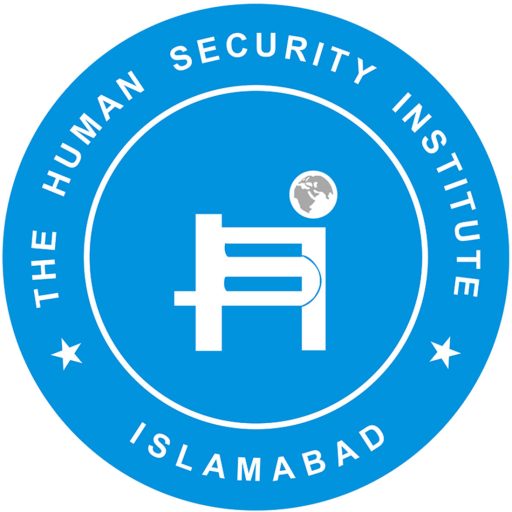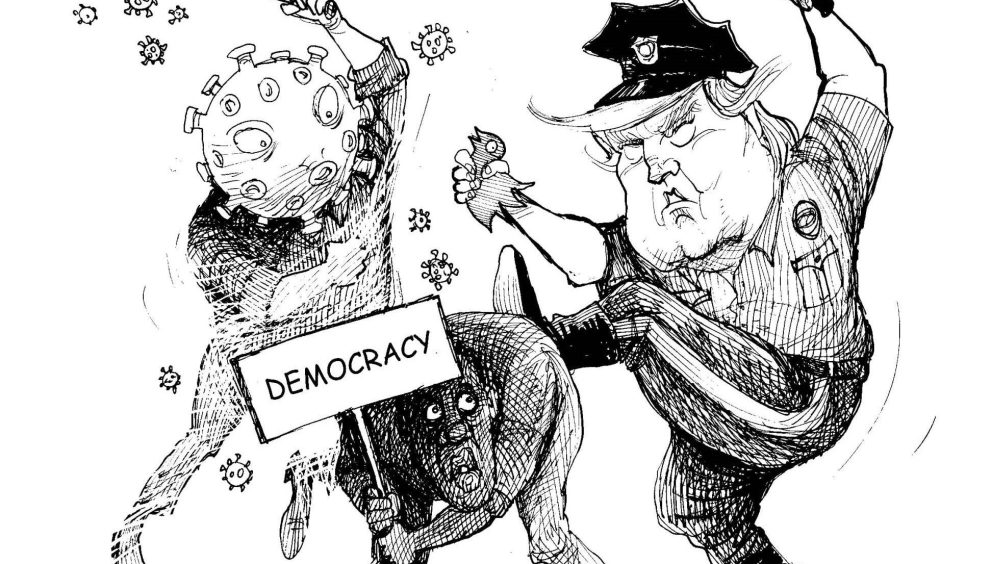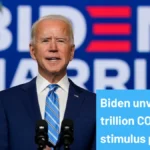The supporters of the outgoing President Trump stormed the Capitol Hill, incited violence, and disrupted the normal proceedings of the Congress. In the political history of the United States of America which according to Henry Kissinger is a ‘beacon of democracy’, the occurrence of this incident has certainly raised eyebrows across the world. It is the manifestation of a polarised society, a society that is overwhelmingly divided on ideological lines. This has certainly refreshed the dormant memory of the radical political polarization that had existed between the ‘Girondins’ and ‘Jacobins’ in the post-revolution French society.
But the question is: why is the world, or more specifically the democratic countries, slumping precipitously into the grip of populist tendencies? Why do leaders have to take refuge in employing ‘exclusionist’ tendencies to strengthen their political survival? What accounts for a rise in the ‘structural racism’ and discrimination in democratic countries, especially the USA? Lastly, what could be the possible ramification of ‘populism’ on the multidimensional aspects of human security, particularly when the entire world is arrested by a new pandemic? Would the populist leaders like Modi, Netanyahu ensure a ‘non-discriminatory’ approach to vaccinate their culturally and religiously diverse population, or would they adopt a strategy of ‘selective-vaccination’? These questions, especially that which are related to human security, have formidable importance.
Populism is an inclination towards exclusionist tendencies. It is contrary to the spirit of democracy wherein every segment, regardless of their identity, is equally represented and respected. Currently, some of the important countries of the world have been ruled over by populist leaders: Donald Trump, Narender Modi, Rodrigo Duterte and the Benjamin Netanyahu are some of the notable examples. It is argued in this article that these leaders could obstruct the ‘indiscriminate’ vaccination of their masses because the political survival of these leaders is attached to hatred, discrimination, or to quote Foreign Affairs magazine—to “structural racism” that has deeply made in ways into the society of the USA. In his book “The Global rise of Populism” Dr Moffitt has delineated certain tenets of populism: behaving in a way which is not typical of decent politicians, and to be always on offensive. Another common thread among populist leaders is they tend to dislike the “complicated democratic systems” of modern government – preferring direct democracy like referendums instead, according to Prof Bull.
The nexus between populist politics and ‘selective vaccination’ could easily be comprehended from the case study of Israel. Yowa Hawari—a Palestinian policy fellow at Palestinian policy network has argued that: “Israel is refusing to provide vaccine to the millions of Palestinians it is forcefully ruling over”. Prime Minister of Israel Benjamin Netanyahu received the pFizer-Biontech Covid-19 vaccine that kicked off the Israel`s national vaccination campaign. In the short interval of two weeks, more than one million ‘Israelis’ have been vaccinated: the highest across the world. But the vaccination drive has deliberately exempted the Palestinians and a large chunk of surplus vaccines, according to Aljazeera, have expired although they could have been used to vaccinate the oppressed Palestinians. Besides, the rapid vaccination drive in Israel has a political aspect too: rapid vaccination drive would certainly consolidate the ‘political survival’ of Netanyahu.
Secondly, the prospects of ‘selective vaccination’ are also on high in the USA. The rationale is certainly a rise in racism during the office of President Donald Trump. The African American population in US, therefore, has least confidence in the health measures of the federal government. According to the recent statistics of Pew research, many points to their distrust of the federal government fuelled by decades of medical studies on Black people, including the Tuskegee Experiment, which left hundreds of Black men untreated for syphilis between 1932 and 1972.
Thirdly, the case study of India. Although the government of India has already launched a massive vaccination campaign, but the prospects of the minorities being deprived of vaccination could not be ignored. Here again comes the factor of the nature of Modi`s government: a truly populist government that has shattered the spirit of India`s political culture I.e., ‘Pluralism’. India is home to 200 million Muslims; approximately 31.9 million Christians; and 20.8 million Sikhs. For a populist government, the vaccination of such overwhelming minorities is certainly a daunting challenge. Hence an indiscriminate drive of mass vaccination is a formidable challenge for the populist governments of the world.
Besides the lingering fear of ‘selective discrimination’ and its impacts on human security, the administrative and economic potential of developing countries certainly project their lacklustre capacity to deal effectively with effective vaccination. According to the research of World Health Organization, most of the developing countries lack ‘administrative machinery’ to overlook the safe storage of vaccines, I.e., a t optimum temperature for storage, and that the prospects of vaccines being expired in developing countries are also high. The developing countries, therefore, are more vulnerable to the fatal consequences of Covid-19.
The confluence of populist politics and the administrative inefficiency of developing countries to cope with the pandemic certainly project a bleak image of human security in near future. Developing countries are home to majority of the world`s population. According to the research of Compassion, it is expected between 2017 and 2050 that half of the world’s population growth will be concentrated in just nine countries: India, Nigeria, Democratic Republic of the Congo, Pakistan, Ethiopia, the United Republic of Tanzania, the United States of America, Uganda and Indonesia. Besides, more than three-quarters of the world’s population lives in Africa (17 percent) and Asia (60 percent.
In order to throw away the yoke of Covid-19, developed countries have already started massive vaccination campaigns. According to Aljazeera, UK is the world`s first country to start vaccination. Countries like USA, Argentina, Belgium, Belarus, Canada, Chile, Costa Rica, Cyprus, the Czech Republic, Denmark, Finland, France, Germany, Greece, Hungary, Israel, Kuwait, Malta, Morocco, Mexico, Oman, Poland, Qatar, Romania, Russia, Saudi Arabia, Serbia, Slovakia, Spain, Switzerland, Spain, Singapore, UAE have also started a vigorous vaccination campaign. But a cursory glance at the previously mentioned named would suggest that these countries fall under the category of developed or rising economies of the world.
To conclude, it is argued that the politics of populism would certainly hinder an indiscriminate vaccination in the world. Similarly, the developing countries, because of their domestic challenges, will face challenges to ensure a smooth vaccination drive in their countries. The developed countries, especially those who have already commenced vaccination must come to the aid of developing countries. It is a test for the collective conscience of the international community to come to the aid of impoverished countries of the world.



